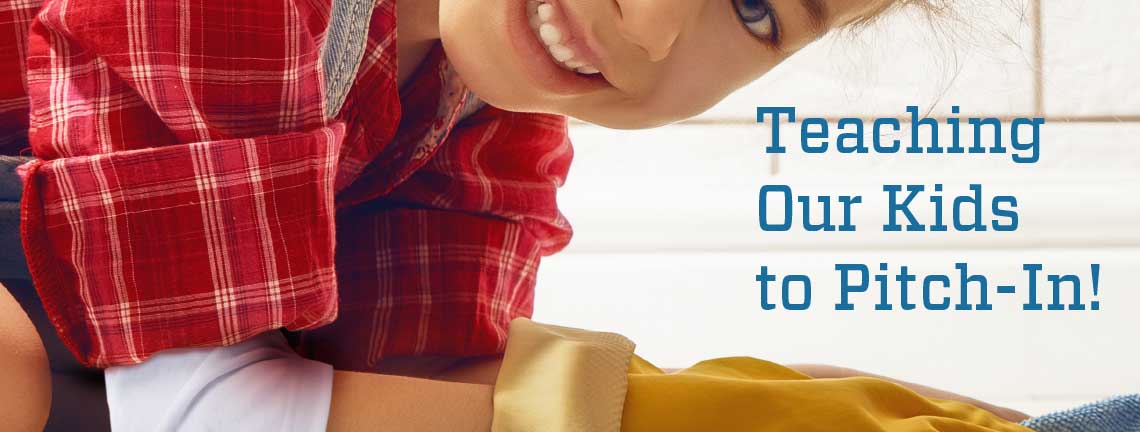The days and weeks leading up to Pesach are punctuated by the smell of Clorox and a slightly topsy-turvy home. While the requirement to clean for Pesach only applies to removing chometz, many Jewish homes are in full “Spring Cleaning” mode during the weeks before Pesach. For those of us with children at home, pre-Pesach is an ideal time to solicit some hands on help from our kids and get them used to contributing to the household chores.
The Torah teaches us to educate every child according to his way, and this applies to practical matters, too. The Gemara, in Kiddushin 29a, lists the obligations of a father to his child, including teaching him Torah, marrying him off, teaching him a trade, and teaching him to swim. Both the spiritual and physical are covered here, and both are regarded with importance.
Teaching a child to swim can be interpreted in the literal sense, but also more loosely, using the colloquial phrase, “sink or swim”. Practical skills and independence help our children swim through the tide of life, not sink and flounder with uncertainty.
A 75-year (and counting) Harvard Grant study, running since 1938, identified two things necessary for success in life: LOVE and WORK ETHIC. The professionally successful subjects identified in the study all had the same response when asked what helped them develop work ethic. Each one said pitching in with age appropriate chores throughout their childhood taught them responsibility and accountability, which had a direct correlation to their present success.
As parents who want to foster healthy spiritual and physical development in our kids, it’s important to make sure we are teaching our kids the important skills needed to get there. Age appropriate chores not only help ease the burden of running the home, they enable kids to grow up and become conscientious, helpful and responsible adults – truly a gift to both our children and their future spouses and children! OK
Age-appropriate chores for kids
Toddler (ages 2–3)
O Pick up/ put away toys
O Unload the dishwasher (silverware, plastic cups, tupperware)
O Dust with feather duster/microfiber rag
O Swiffer the floor
O Put clothes in the dirty clothes hamper
O Collect dirty clothes
O Help move clothes from washer to dryer
O Put clothes away
O Make bed
O Wipe cabinets
O Wipe baseboards (soapy water)
Preschooler (ages 4–5)
O Any previous chores
O Load the dishwasher
O Vacuum couch/ chairs/ cushions
O Take out recycling
O Set table
O Clear table
O Wash dishes (with supervision)
O Clean windows
O Wipe out bathroom sinks
O Match socks
O Fold dish towels
O Weed
O Water indoor plants
O Feed pets
Early Elementary (ages 6–8)
O Any previous chores
O Meal prep (wash produce, find ingredients, simple cutting)
O Wipe bathroom sinks, counters, toilets
O Hang out laundry
O Sweep
O Vacuum
O Collect garbage
O Get mail
O Fold/hang laundry
O Clean microwave
O Rake leaves
Elementary (ages 9–11)
O Any previous chores
O Make simple meals
O Take garbage/ recycling to the curb
O Wash/ dry clothes
O Clean toilets
O Mop floors
Middle School (ages 12–14)
O Any previous chores
O Clean tub/ shower
O Make full meals/ meal plan
O Clean out fridge/ freezer
O Mow yard
O Supervise younger children’s chores
You should take into account your child’s specific abilities and maturity level when assigning chores. This is a list of possible chores that most children in each age group are able to do. You can select the number of chores that you feel is appropriate for your child.







